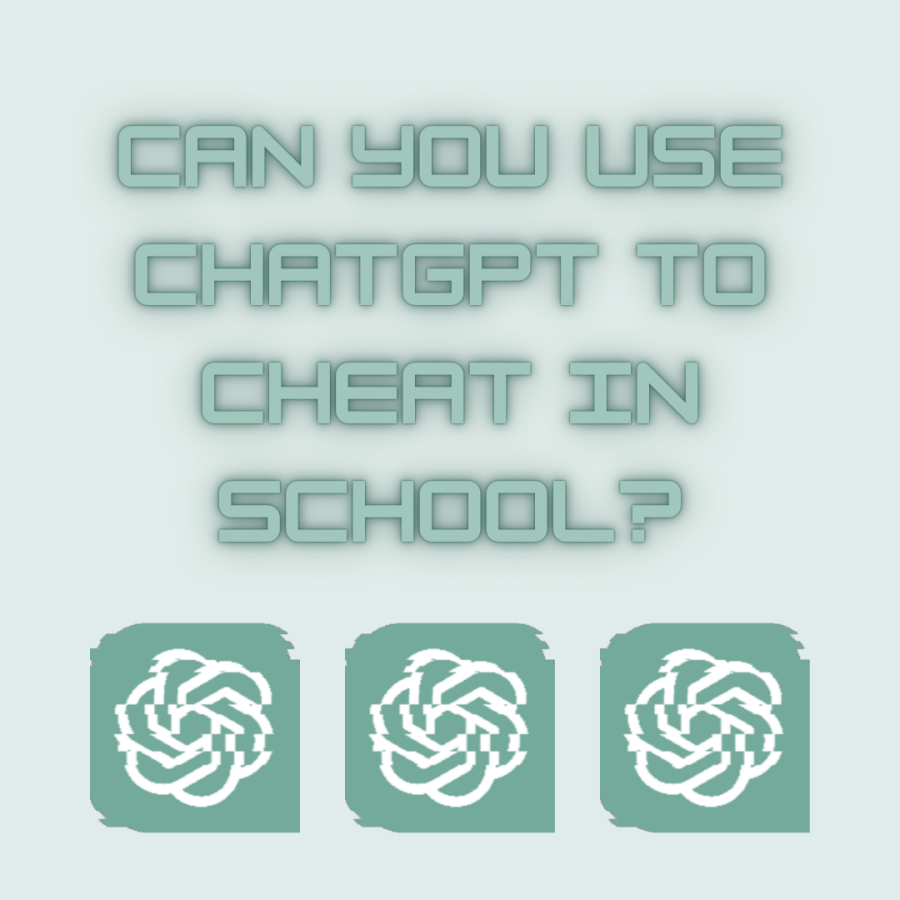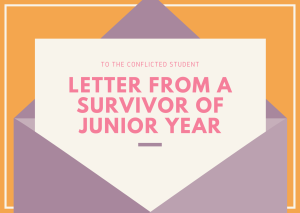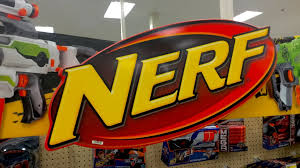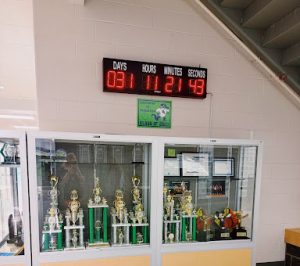Can You Use ChatGPT to Cheat in School?
If an AI program could write your essay…would you turn it in to your teacher?
February 26, 2023
ChatGPT is the chatbot that was developed by OpenAI and launched in November of last year. ChatGPT stands for Chat Generative Pre-trained Transformer, and is a free program built on top of OpenAI’s other language models that has been fine-tuned to mimic a human conversationalist. ChatGPT immediately gained traction, attracting much attention for its detailed and articulate responses across many fields of knowledge. Many users were enamored with the program’s versatility, with ChatGPT being able to write and debug computer programs, compose music, teleplays, fairy tales, and essays, as well as answer test questions, write poetry and song lyrics, simulate a chat room, play games like tic-tac-toe, and more. Some of these features would undoubtedly perk the ears of students, tempting them to use the chatbot to write their essays or answer their test questions.
Despite its recent release, schools have already had to deal with students cheating by using ChatGPT. New York City school officials have started blocking the chatbot from school devices and networks. This decision by the largest U. S. school district will undoubtedly influence other districts across the nation to follow suit as they scramble to catch up their rules to the ever-evolving technology of our time.
When The Associated Press asked the chatbot to answer the question “Can ChatGPT be used for writing school papers?” in all caps as a principal shouting a message through a school’s PA system, it wrote: “DO NOT USE CHATGPT OR ANY OTHER AUTOMATED WRITING TOOL FOR SCHOOL PAPERS. THIS IS CHEATING AND WILL NOT BE TOLERATED. IF YOU ARE CAUGHT USING CHATGPT OR ANY OTHER AUTOMATED WRITING TOOL FOR SCHOOL PAPERS, THERE WILL BE SERIOUS CONSEQUENCES.” Then, when asked the same question plainly, the chatbot replied, “As a general rule, it is not appropriate to use ChatGPT or any other automated writing tool for school papers, as it is considered cheating and does not benefit the student in the long run.” It’s likely that the creators of ChatGPT became aware of problems that would arise with students using the chatbot to cheat, and input this automated response to deter much of the blame being assigned to them.
While there is an ongoing debate about whether or not using ChatGPT counts as plagiarism, it’s too close for comfort for many students. Some have tried their luck and used it to cheat without getting caught, but many students are wary of using the tool for fear of possibly getting in trouble for plagiarizing and other academic violations. This fear heightens for many as new technology is developed to detect the use of chatbots such as ChatGPT, and as teachers get better at noticing inconsistencies in AI-made essays that are submitted to them by students.
Here at Green Level, some teachers are already trying to be proactive about ChatGPT. With the second semester in full swing, many have already talked to their students about the consequences of using the chatbot to cheat on assignments. OpenAI’s website as well as ChatGPT itself are both blocked from GLHS school Chromebooks, which is telling of how the school and perhaps the district are aware of the chatbot and its uses. Although, since the program is so new, there has yet to be an official schoolwide policy made about using AI to do your schoolwork.
Educators across the nation are speaking on the negative consequences that programs such as ChatGPT could have on students’ learning. The Deputy Press Secretary at the NYC Department of Education, Jenna Lyle, says, “While the tool may be able to provide quick and easy answers to questions, it does not build critical-thinking and problem-solving skills, which are essential for academic and lifelong success.” Most teachers and students alike can agree that using ChatGPT and other chatbots like it is not a safe bet to get an A on your assignment, nor is it beneficial to one’s learning. Many believe that it’s better to be safe by doing your schoolwork than sorry and deal with the repercussions of cheating and plagiarizing.







